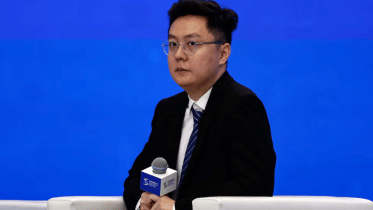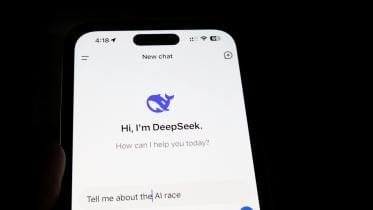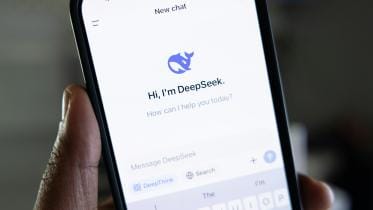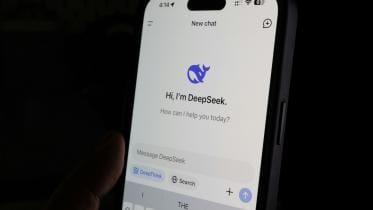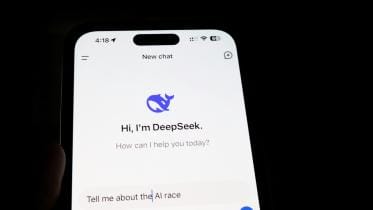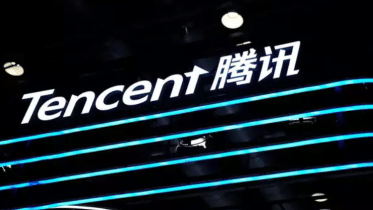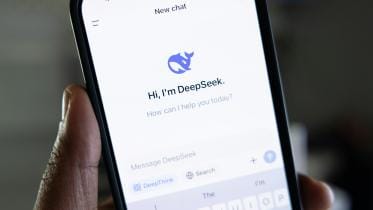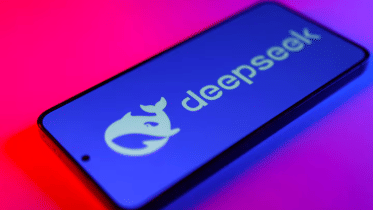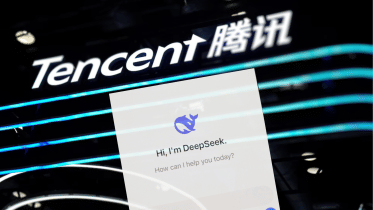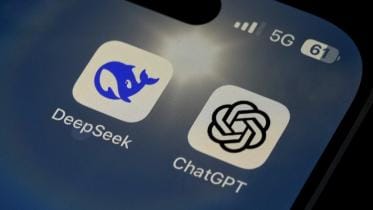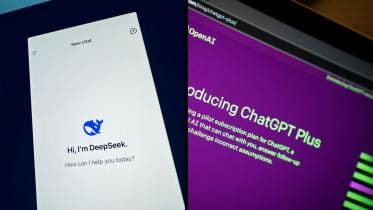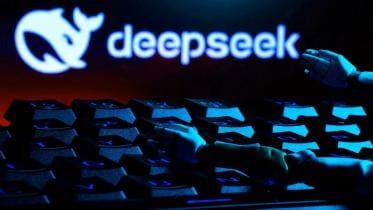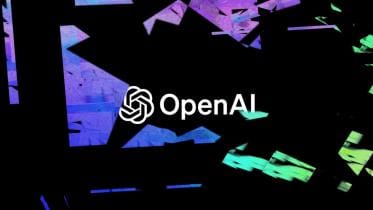DeepSeek
DeepSeek is looking for AI search engineers: report
Chinese AI company DeepSeek is planning to launch an AI search engine and develop more automated software, according to a report by Bloomberg News. The plans were reportedly revealed in multiple job adverts from the company this month.
30 January 2026, 23:39 PM
AI could replace human jobs in 10-20 years, warns DeepSeek researcher
Victor Chen Deli, a senior researcher from Chinese AI firm DeepSeek, has recently expressed pessimism about artificial intelligence’s long-term effect on employment and society. He made the remarks during a rare public appearance at the World Internet Conference in Wuzhen, China.
9 November 2025, 07:15 AM
DeepSeek R1 is now a peer-reviewed AI model
Chinese AI firm DeepSeek has published a peer-reviewed paper in the scientific journal Nature, describing its large language model R1, which is designed to handle reasoning tasks such as maths and coding. The company said the system was not trained on the output of rival models, addressing speculation about its data sources.
21 September 2025, 07:43 AM
DeepSeek spent $294,000 to train its popular AI model
DeepSeek, the Chinese artificial intelligence (AI) developer, has recently disclosed that training its flagship R1 model cost $294,000, a figure far lower than the amounts often associated with the development of other AI models.
19 September 2025, 12:34 PM
How the Liangzhu model is challenging Silicon Valley’s AI dominance
The Liangzhu model benefits from coordinated support from both large corporations and the government.
29 July 2025, 05:00 AM
Germany is banning DeepSeek from app stores: Report
Germany’s data protection commissioner has asked Apple and Google to remove DeepSeek, the Chinese artificial intelligence (AI) application from their app stores, citing concerns over the illegal transfer of personal data to China, according to a recent report by Reuters.
28 June 2025, 09:42 AM
Anthropic finds most top AI models resort to blackmail in stress tests
Anthropic, an American AI startup, has revealed that many of the world’s most advanced language models - including those developed by OpenAI, Google, DeepSeek, xAI, and Meta - resort to harmful tactics such as blackmail when placed under pressure in simulated environments in findings published on June 21.
23 June 2025, 02:58 AM
DeepSeek quietly updates its R1 reasoning model
Chinese AI startup DeepSeek has released an update to its R1 reasoning model. The new version, named R1-0528, was published on developer platform Hugging Face on May 29, although the company has not yet issued an official announcement.
29 May 2025, 03:47 AM
Tencent launches Hunyuan T1 reasoning model
Tencent, the Chinese technology conglomerate, has officially launched its Hunyuan T1 reasoning model on March 21.
23 March 2025, 03:32 AM
US Commerce Department bans DeepSeek on government devices: report
In a recent email to staffers that was seen by Reuters, the department warned against downloading or accessing any DeepSeek-related applications, websites, or desktop apps, stating the move is necessary to “keep Department of Commerce information systems safe.”
18 March 2025, 07:17 AM
Baidu releases new AI model to compete with DeepSeek
Chinese internet search giant Baidu released a new artificial intelligence reasoning model Sunday and made its AI chatbot services free to consumers as ferocious competition grips the sector.
16 March 2025, 18:39 PM
DeepSeek now offers 'off-peak' discounts
Chinese AI startup DeepSeek has introduced discounted off-peak pricing for its AI models, offering developers up to 75% lower costs during specific hours.
27 February 2025, 10:25 AM
South Korea suspends DeepSeek downloads
South Korea has suspended new downloads of the Chinese AI chatbot DeepSeek, citing concerns over personal data protection. The country’s Personal Information Protection Commission (PIPC) announced the decision on Monday, stating that the app will remain unavailable until it complies with local privacy laws.
17 February 2025, 06:56 AM
Tencent’s Weixin app begins testing DeepSeek AI-powered search
Tencent recently announced that it has begun testing the integration of DeepSeek’s artificial intelligence model into its Weixin messaging app also known as WeChat as Chinese technology firms compete to develop and implement advanced AI solutions.
16 February 2025, 11:47 AM
Google introduces new AI models amid cost pressures from rivals
Alphabet’s Google has recently unveiled updates to its Gemini family of large language models (LLMs), including a new low-cost product line designed to compete with budget AI models such as those from Chinese rival DeepSeek.
5 February 2025, 17:21 PM
India's finance ministry asks employees to avoid AI tools like ChatGPT, DeepSeek
Countries like Australia and Italy have placed similar restrictions on the use of DeepSeek
5 February 2025, 10:47 AM
ChatGPT and DeepSeek banned by India's finance ministry: report
India’s finance ministry has banned the use of artificial intelligence tools, including ChatGPT and DeepSeek, in official work due to concerns over data security and confidentiality, according to a recent report by Reuters.
5 February 2025, 07:01 AM
Australia bans DeepSeek AI program on government devices
Australia upped the ante overnight banning DeepSeek from all government devices
5 February 2025, 04:24 AM
OpenAI announces new 'deep research' tool for ChatGPT
Artificial intelligence newcomer DeepSeek has sent Silicon Valley into a frenzy
3 February 2025, 03:26 AM
Will DeepSeek become a major competitor to OpenAI?
The competition in the world of artificial intelligence, or AI, is getting more intense day by day. Along with powerful models like OpenAI's ChatGPT, China's DeepSeeK AI is also gaining popularity. How is this new AI startup surprising the whole world? Let's find out in today's Star Explains.
1 February 2025, 09:05 AM




